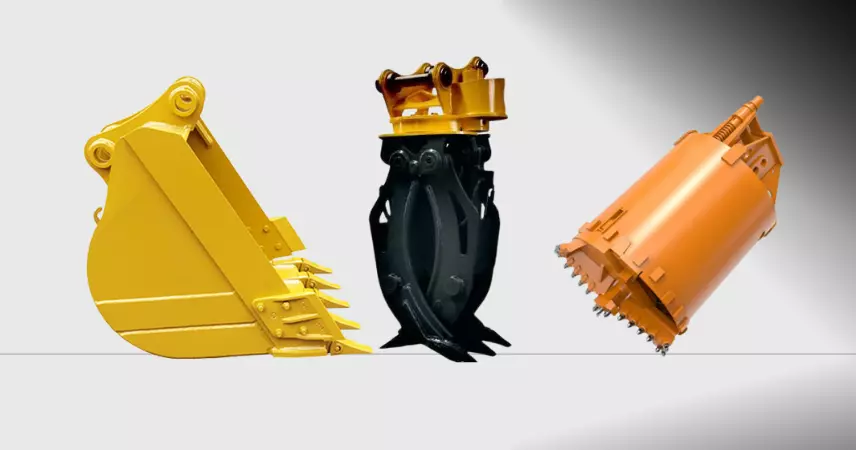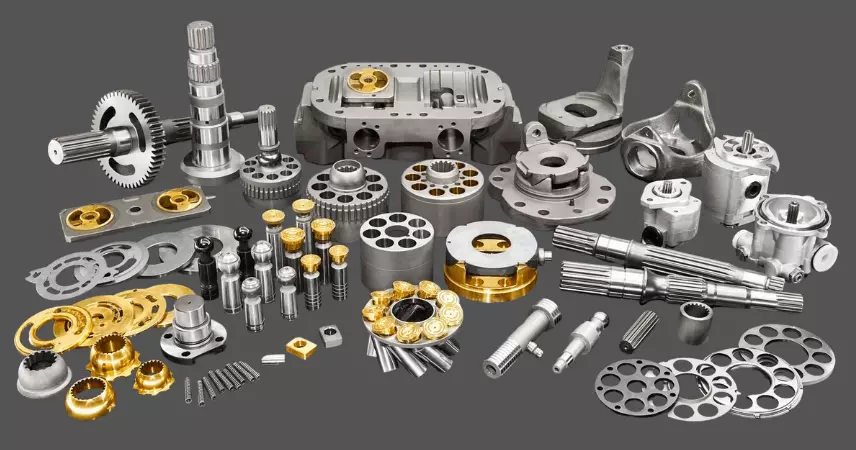+86-135 3388 0668

Sure! Here's a 1400-word soft article divided into two parts, focusing on the theme "Hydraulic pumps for Sale." The article is designed to be both informative and engaging.
Understanding Hydraulic Pumps and Their Importance in Modern Industry
Hydraulic pumps are crucial components in a wide array of industries, from manufacturing and construction to agriculture and automotive. These powerful devices play a pivotal role in converting mechanical energy into hydraulic energy, powering machinery and systems that require fluid movement under pressure. When searching for hydraulic pumps for sale, it’s important to understand their functions, types, and the key factors to consider before making a purchase.
What Are Hydraulic Pumps?

At its core, a hydraulic pump is a mechanical device designed to move hydraulic fluid through a system, creating pressure that drives hydraulic machinery. This process involves converting mechanical energy into fluid energy, which is then used to power hydraulic cylinders, motors, and other hydraulic components. Hydraulic pumps are found in everything from heavy-duty trucks and construction equipment to industrial machinery and even agricultural tractors.
The basic function of a hydraulic pump is to draw hydraulic fluid from a reservoir and pressurize it, pushing it into a hydraulic circuit where it is used to perform tasks such as lifting, pushing, and turning. These pumps are designed to provide consistent power, making them indispensable in any machine that relies on fluid power.
Types of Hydraulic Pumps for Sale
When you begin searching for hydraulic pumps for sale, it’s essential to understand the various types available on the market. The primary categories of hydraulic pumps are:
Gear pumps: Gear pumps are the most common and cost-effective type of hydraulic pump. They operate by using meshing gears to push hydraulic fluid through the system. These pumps are known for their simplicity, durability, and ease of maintenance. They are typically used in lower-pressure applications and provide a steady, reliable flow of fluid.
Piston Pumps: Piston pumps are designed for higher-pressure applications. They operate using pistons that move back and forth within cylinders to generate fluid movement. Piston pumps can deliver variable flow rates and pressure, making them suitable for a wide range of industrial applications, including those that require precise control.
Vane Pumps: Vane pumps are often used in medium-pressure applications. They operate by using a rotor with sliding vanes that create cavities to draw and discharge fluid. These pumps are known for their smooth, consistent flow and are commonly used in applications like construction equipment and agricultural machinery.
Factors to Consider When Buying Hydraulic Pumps for Sale
Choosing the right hydraulic pump is a critical decision that can impact the performance, longevity, and efficiency of your machinery. Here are a few essential factors to consider when searching for hydraulic pumps for sale:
Flow Rate: The flow rate of a hydraulic pump refers to the amount of hydraulic fluid it can move per unit of time, typically measured in gallons per minute (GPM) or liters per minute (LPM). The required flow rate depends on the application and the power needs of the system you’re working with.
Pressure Rating: Hydraulic pumps come with specific pressure ratings that indicate the maximum pressure the pump can handle. It’s crucial to choose a pump that meets the pressure requirements of your system to ensure reliable operation and prevent damage.
Pump Efficiency: Pump efficiency is a key factor in determining the energy consumption and overall performance of the system. High-efficiency pumps reduce energy costs and minimize the wear and tear on other system components, ultimately leading to reduced maintenance and longer service life.
Size and Mounting Options: Ensure the hydraulic pump you choose fits the space and mounting configuration of your system. Hydraulic pumps come in a variety of sizes, and selecting the right one ensures optimal performance and easier installation.
Material and Construction Quality: Durability is paramount when selecting hydraulic pumps for sale. Pumps made from high-quality materials like stainless steel or aluminum offer enhanced resistance to wear, corrosion, and extreme temperatures, ensuring longevity even in the most demanding environments.
Why Investing in Quality Hydraulic Pumps Matters
While it might be tempting to opt for the lowest-cost hydraulic pump available, investing in high-quality pumps pays off in the long run. Here are several reasons why quality matters:
Reliability: High-quality pumps are designed to deliver consistent and reliable performance over time. Poor-quality pumps may experience frequent failures, leading to unplanned downtime, costly repairs, and potentially damaged equipment.
Efficiency: Quality hydraulic pumps are often more energy-efficient, meaning they can deliver the same or better performance while consuming less power. This can significantly reduce operating costs, especially in systems that run continuously or under high load.
Safety: A well-constructed hydraulic pump can handle high pressures and extreme conditions, ensuring the safety of both your machinery and your personnel. Low-quality pumps are more prone to failure, which could lead to dangerous accidents or system malfunctions.
Lower Maintenance Costs: Investing in a reliable hydraulic pump means fewer repairs and less maintenance. High-quality pumps are built to withstand harsh environments and heavy-duty workloads, ensuring that you get the most out of your investment.
How to Choose the Best Hydraulic Pumps for Sale and Maximize Your Investment
Now that we have explored the basics of hydraulic pumps, it’s time to dive into how to make an informed decision when choosing the best hydraulic pumps for sale. Making the right choice is crucial for your system’s performance, and it requires a thoughtful approach to selecting the best pump for your unique needs.
Researching Hydraulic Pump Manufacturers and Suppliers
Before you begin shopping for hydraulic pumps for sale, it’s essential to research the manufacturers and suppliers. Not all hydraulic pumps are created equal, and purchasing from a trusted supplier ensures you are getting a pump that meets high standards of quality and reliability. Look for suppliers who specialize in hydraulic systems and have a proven track record of delivering high-performance products.
Additionally, consider factors such as customer service, warranty policies, and after-sales support. A supplier who provides excellent customer support and offers warranties on their products can give you peace of mind and assistance if any issues arise after purchase.
Reviewing Customer Feedback and Case Studies
One of the best ways to gauge the quality and performance of a hydraulic pump is by reviewing customer feedback and case studies. Many reputable suppliers publish success stories or case studies on their websites, highlighting how their pumps have been used in various industries. This can help you get a better understanding of the pumps' performance in real-world applications.
Customer reviews can also provide valuable insights into the reliability, efficiency, and durability of different pumps. Be sure to read both positive and negative reviews to get a balanced view of what you can expect from each pump.
Matching the Right Pump to Your Application
Different applications require different types of hydraulic pumps. The first step in choosing the right pump is to understand the specific needs of your system. Consider factors such as:
The type of machinery or equipment you’re powering
The maximum operating pressure
The flow rate requirements
The Operating environment (temperature, humidity, etc.)
For instance, if you’re operating in an environment where high pressure is required, you may need a piston pump, while a gear pump could be sufficient for lower-pressure applications. Matching the right pump to your needs ensures that you’re getting the best performance and efficiency.
Checking for Compliance and Certifications
When purchasing hydraulic pumps for sale, it’s crucial to ensure that the pumps meet industry standards and regulatory requirements. Look for certifications such as ISO, CE, or UL, which indicate that the pumps have been tested and meet specific safety, environmental, and performance criteria.
Conclusion: The Importance of Choosing the Right Hydraulic Pump for Your Needs
In summary, finding the best hydraulic pumps for sale involves understanding your system’s needs, considering the pump's specifications, and working with trusted suppliers. By focusing on quality, efficiency, and reliability, you can maximize the performance of your hydraulic system and ensure long-term success. Whether you’re in construction, manufacturing, or any other industry that relies on hydraulic power, investing in the right hydraulic pump will pay dividends in performance and cost savings.
As you begin your search for hydraulic pumps for sale, take the time to evaluate different options, conduct thorough research, and make an informed decision. This will set you on the path toward achieving optimal performance and durability in your hydraulic systems.
This concludes Part 1 and Part 2 of the article on hydraulic pumps. Let me know if you need further adjustments or additional information!
Search
Blog & News